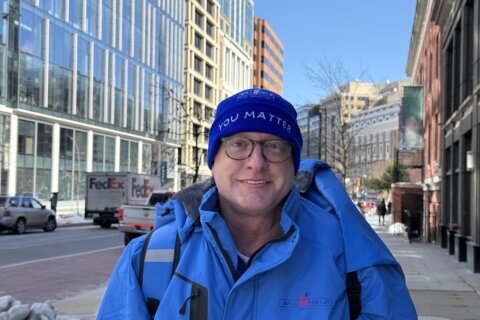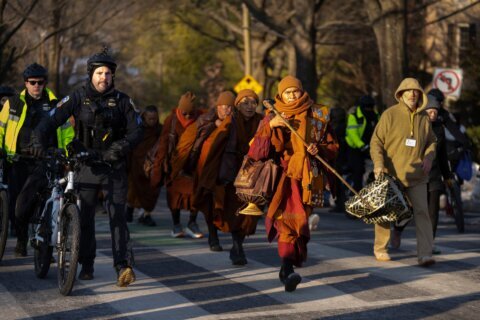Saying that the COVID-19 health crisis is “laying bare the inequities in our system,” D.C. Mayor Muriel Bowser provided more details Thursday about two new hospitals and several other medical centers that will open in the coming years and said they will “transform our health care system by promoting equity in care, access and outcomes.”
The mayor announced Wednesday night that a 136-bed hospital will be built at St. Elizabeths East in Ward 8 that will be operated by Universal Health Services and The George Washington University and George Washington Medical Faculty Associates. In Ward 1, a 225-bed Howard University Hospital will be built on Georgia Avenue, which is expected to open in 2026.
There are also plans for five Centers of Excellence at Howard University Hospital: Sickle Cell, Women’s Health, Oral Health, Trauma and Violence Prevention, and Substance Abuse.
D.C. is funding the construction of the $306 million St. Elizabeths hospital.
The government is also providing about $225 million in tax abatements for the new Howard hospital, as well as $25 million in public infrastructure support and $26.6 million over the next six years for the Centers of Excellence.
- Sign up for WTOP alerts
- Johns Hopkins doctors say contact tracing crucial for safely reopening states
- Virginia Gov. Northam: Elective surgeries, dental procedures can resume soon
- DC theater industry prepares for uncertain future amid coronavirus crisis
- DC-area libraries, museums gather artifacts, ephemera to document coronavirus crisis
- Latest coronavirus test results in DC, Maryland and Virginia
- Coronavirus resources: Get and give help in DC, Maryland and Virginia
Bowser announced that D.C. and its partners are funding the building of a health services complex at St. Elizabeths and two new urgent care centers in Wards 7 and 8.
The District’s total commitment to the projects is around $400 million.
Asked how D.C. will pay for its commitment days after Chief Financial Officer Jeffrey DeWitt said the economic impact of the COVID-19 crisis would force the city to live with about $1.5 billion less in revenue over the next fiscal year and a half than it had anticipated, City Administrator Rashad Young said, “This budget is certainly an incredible challenge.”
He emphasized, however, that the District still has a budget of about $7 billion, and a capital budget is about $6.5 billion.
“So, there are resources to be invested,” and that “we see this as a critical investment,” Young said.
Bowser didn’t provide details about what might be cut in order to make room for the projects, saying that her office will bring a revised budget proposal to the D.C. Council in about a week and a half.
Young emphasized that while a hospital was considered “the big shiny building,” the urgent care centers and other medical establishments are part of a focus on prevention so that residents have “a network to connect with” comprising all kinds of health care providers.
Bowser and Young responded to labor concerns by saying that D.C. would not have entered into a partnership with Universal Health Services without an assurance that labor laws would be followed.
The remarks came the same day as D.C. posted its biggest one-day death toll, 19, bringing the District’s total to 224.
The D.C. Health Department also reported the second-highest daily totals in tests performed, with 850, and new cases, with 217.
Earlier this month, D.C. announced that the low end of potential COVID-19 deaths would be 225.
Bowser said last week that the resumption of normal life in D.C. was a “once-in-a-generation opportunity” to rectify structural inequities that have persisted for decades.
She also pointed out that the District has “some of the best hospitals and most talented medical professionals anywhere in the world” and “one of the lowest uninsured rate in the nation.”
“In theory … we shouldn’t have major disparities in our health outcomes,” Bowser said. “However, we know that’s not how it works. Generations of racism … have put black Washingtonians at a major health disadvantage.”
The mayor pointed out that African Americans comprise 46% of Washingtonians, but 80% of the deaths from COVID-19, and that life expectancy in Ward 8 is 15 years lower than in Ward 3.
“It’s unacceptable, and there’s no doubt that we can and must do better,” Bowser said.
She added that 85% of those who died from complications with the coronavirus had underlying chronic conditions such as hypertension and diabetes, which “cause so many other problems” even when there isn’t a pandemic.
WTOP’s Abigail Constantino, Jack Moore and Alejandro Alvarez contributed to this report.








